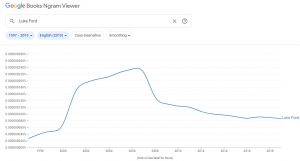I like to spend Sunday mornings journaling on the Big Book of Alcoholics Anonymous.
I read the Big Book with HerbK’s three questions in mind:
* Why am I doing this work?
* Why am I doing this work now?
* In what parts of my life am I being dishonest with myself and others?
I’m currently journaling on chapter four — “We Agnostics.”
This morning I read the following:
We had to ask ourselves why we shouldn’t apply to our human problems this same readiness to change our point of view. We were having trouble with personal relationships, we couldn’t control our emotional natures, we were a prey to misery and depression, we couldn’t make a living, we had a feeling of uselessness, we were full of fear, we were unhappy, we couldn’t seem to be of real help to other people…
When we saw others solve their problems by a simple reliance upon the Spirit of the Universe, we had to stop doubting the power of God. Our ideas did not work. But the God idea did.
I rejoiced that thanks to my 12-step programs, I no longer have extensive trouble with personal relationships, that I generally feel in control of my emotions, that I’m rarely prey to misery and depression, that I make a living, that I never have a feeling of uselessness, that I’m rarely overwhelmed by fear, that I’m happy, and that I feel myself regularly being of real help to others.
Then I read: “Our ideas did not work. But the God idea did.” I stopped. For most of my life, I believed in God and it did next to nothing for my emotional addictions. So why did the 12-step approach to God work for me when the Christian and Jewish approaches to God do next to nothing for my addictions?
I realized the 12-step approach gave me:
* Specificity with regard to the relationship between God and to recovery from my particular addiction.
* I got a community with my specific problem and then I felt the joy of bonding with people who’d been where I had been and gotten better.
* I heard stories from people with my specific problem talk about how the program enabled them to overcome their addiction. I identified with large parts of these stories, and then I felt comfortable sharing my story (what it was like, what happened, what it’s like now).
* I made friends and acquaintances with people with my specific problem and I opened up to them, I got honest with them, and I was willing to take guidance from them (because virtually none of them wanted to judge my life or to run my life, they only wanted to share their experience, strength and hope to the extent I wanted to hear it).
* In each program, I got 12 steps, 12 tools and 12 traditions that had enabled thousands of other people to overcome their compulsions.
* I got sponsorship that wasn’t overwhelming or bossy or intrusive or judgmental. Instead, it simply held me accountable.
* Nobody preached at me and nobody tried to abuse me. In my 12 years in 12-step program, I never recall suffering a loss from gossip. I am sure people have gossiped about me, but I don’t ever recall suffering any harm from it. Nobody, for example, took my social media posts and reported them to a higher authority (which frequently happened to me in Judaism). Nobody tried to bully me and nobody threatened to exclude me or to ban me.
* I got something that was incredibly pragmatic and flexible.
* Nobody I knew was making money from this thing. I’ve seen very little abuse of power and prestige. Twelve-step programs are the only things I know where they don’t want money from outsiders, and they limit the amount of money they will take from insiders (usually no more than $2,000 a year).
* Ego deflation at depth that enabled me to consistently transcends my heretofore crippling narcissism.
Prior to my first 12-step program in 2011, I had contempt for spirituality and too much faith in religion, therapy, psychiatric drugs, self-help, and the power of self-control and self-sufficiency.
I’ve been listening to the Audible book Verbal Judo. It was a sobering experience because I realized how little willingness I have at times to put my ego aside and ignore the insults of others.
So why am I doing this work? Because it works for me.
So why am I doing this work now? Among other things, I notice I have this hair-trigger temper that does not serve me. Also, I consistently lack consideration for others and for myself. I go into my interactions with what I want and I pay inadequate attention to what others want. There’s a reason I got the nickname “User.”
Where am I being dishonest with myself and others? In my lack of concern about my temper and my inconsideration. I love a good joke, even if it makes the rest of the Succoth table uncomfortable.

